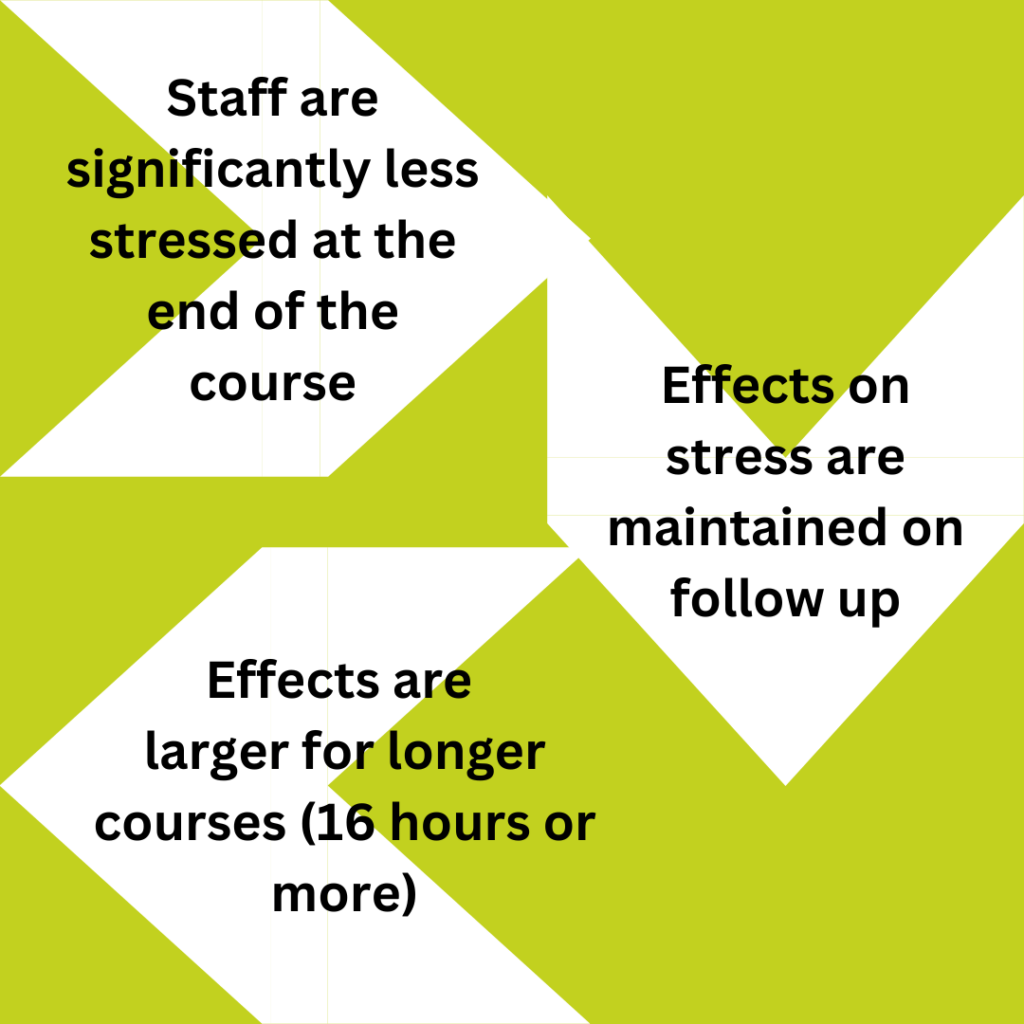Evidence that mindfulness works
Based on evidence, the National Institute for Health and Care Excellence (NICE) recommends that mindfulness should be offered to “all employees…on an ongoing basis.”
Benefits of mindfulness
The benefits of mindfulness for staff include improved wellbeing and resilience, and ability to manage stress. These benefits lead to less absenteeism and greater productivity.
Other benefits include heightened emotional intelligence and greater self-management, which in turn improves relationships with colleagues and decreases conflict in the workplace. When mindfulness is embedded within an organisation, it is likely there will be increased creativity, better decision making and a more productive and compassionate workplace culture.
Evidence points to positive impacts
Evidence shows an increase in collaboration and greater awareness of fostering good relationships in the workplace. Read the Mindful Nation UK report.
In 2021, the Wellcome evidence-based report on workplace mental health recommended that all staff should be given access to mindfulness courses. The most recent NICE guidance on mental wellbeing at work that came out in March 2022: Recommendations | Mental wellbeing at work | Guidance | NICE recommends that mindfulness should be offered to “all employees…on an ongoing basis”. Paragraph 1.6.4 and 1.7.4 states that, “The committee agreed that mindfulness, meditation and yoga were most effective overall in reducing job stress and mental health symptoms and having a positive effect on employee mental wellbeing.”
Our research shows significant impact
Our own research shows that staff attending a mindfulness course are significantly less stressed by the end of the course, compared with staff who didn’t take the course. Follow up evaluations show that lower stress levels are maintained. Finally, the impacts for staff were more significant for those who did courses with 16 hours or more of contact time.


